12 start with Y start with Y
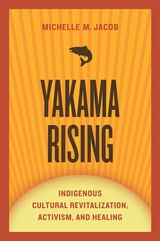
Michelle M. Jacob employs ethnographic case studies to demonstrate the tension between reclaiming traditional cultural practices and adapting to change. Through interviewees’ narratives, she carefully tacks back and forth between the atrocities of colonization and the remarkable actions of individuals committed to sustaining Yakama heritage. Focusing on three domains of Indigenous revitalization—dance, language, and foods—Jacob carefully elucidates the philosophy underlying and unifying each domain while also illustrating the importance of these practices for Indigenous self-determination, healing, and survival.
In the impassioned voice of a member of the Yakama Nation, Jacob presents a volume that is at once intimate and specific to her home community and that also advances theories of Indigenous decolonization, feminism, and cultural revitalization. Jacob’s theoretical and methodological contributions make this work valuable to a range of students, academics, tribal community members, and professionals, and an essential read for anyone interested in the ways that grassroots activism can transform individual lives, communities, and society.
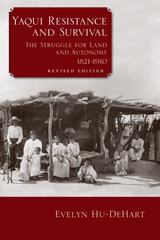
In this revised edition of her groundbreaking work, Hu-DeHart reviews and reflects on the growth in scholarship about the Yaqui, including advances in theoretical frameworks and methodologies on borderlands, transnationalism, diaspora, and collective memory that are especially relevant to their history.
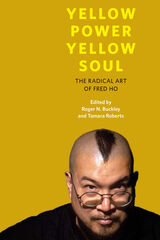

Yenching University was perhaps the most impressive example of Sino-Western cooperation in the twentieth century. From its founding in 1916 by Western missionaries until the Communist victory, Yenching mirrored the colorful and frustrating efforts of Chinese and Western liberals to find solutions to China's overriding preoccupation with national salvation. In charting the ebb and flow of university life, this definitive work sheds light on the intellectual, social, and diplomatic forces at work in this transitional period in Chinese history.
Philip West's analysis of the Yenching episode is carefully placed within the political context, both domestic and foreign, of the Republican years (1912–1949). But the author sees intercultural history as being more than an extension of politics and diplomacy. The early bond between Chinese and Westerners at Yenching, despite its fame as an educational institution, was a religious one. Rising national consciousness, student radicalization, and China's unending experience of war weakened that religious tie. And yet religious purposes are a part of the Yenching story to the end.
In his handling of intercultural history, West has a keen appreciation for the interplay of political forces and individuals. The demise of Yenching and the breakdown of Sino-Western relations generally are seen in terms of the individual behavior of Yenching personalities, the pressures of Communist ideology, and also Western diplomacy surrounding the Korean War. Throughout this study major attention is given to the pivotal role of that towering personality in Sino-Western relations, John Leighton Stuart, Yenching's longtime president and the last American Ambassador to China prior to the Communist takeover.
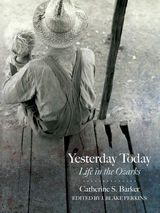
Catherine S. Barker's 1941 book Yesterday Today: Life in the Ozarks sought to illuminate another side of these “remnants of eighteenth-century life and culture”: poverty and despair. Drawing on her encounters and experiences as a federal social worker in the backwoods of the Ozarks in the 1930s, Barker described the mountaineers as “lovable and pathetic and needy and self-satisfied and valiant,” declaring that the virtuous and independent people of the hills deserved a better way and a more abundant life. Barker was also convinced that there were just as many contemptible facets of life in the Ozarks that needed to be replaced as there were virtues that needed to be preserved.
This reprinting of Yesterday Today—edited and introduced by historian J. Blake Perkins—situates this account among the Great Depression-era chronicles of the Ozarks.
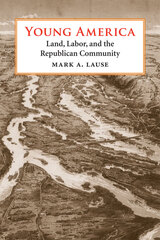
Rooting the movement in contemporary economic structures and social ideology, Young America examines this urban and working-class "agrarianism," demonstrating how the political preoccupations of this movement transformed socialism by drawing its adherents from communitarian preoccupations into political action. The alliance of the NRA's land reformers and radical abolitionists led unprecedented numbers to petition Congress and established the foundations of what became the new Republican Party, promising "Free Soil, Free Labor, Free Men."
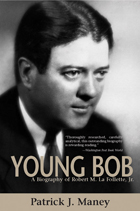
United States senator "Young Bob" La Follette entered politics as a young reformer in the shadow of his legendary father, "Fighting Bob" La Follette. He made his own mark as a key architect of Roosevelt’s New Deal and as a champion of labor rights and civil liberties. But in 1946 he was unexpectedly unseated by Joseph McCarthy, whose rise to Cold War notoriety foreshadowed La Follette’s despair and suicide in 1953. This new edition updates the only full scale biography of La Follette,Jr., the first to exploit his voluminous collection of personal papers. Patrick J. Maney makes clear that Young Bob’s story is as relevant today as it was when he died. His life stands as dramatic evidence of how one of the most respected politicians of his time bridged the political spectrum and was admired by both liberals like FDR and Harry Truman and conservatives like Robert Taft and Richard Nixon.
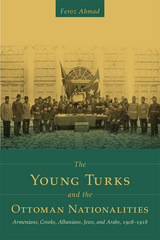
Ahmad holds that nationalism was introduced into the Ottoman Empire during the French Revolution, providing kindling for the struggles that later emerged. Setting the stage with this nineteenth-century background, Ahmad then examines each Ottoman nationality in the wake of the restoration of the Ottoman constitution in 1908. Officially known as the Committee of Union and Progress (CUP), the Young Turks made up a nationalist political party that ruled the Ottoman Empire from 1908 until the end of World War I. Ahmad illuminates the relationships and conflicts between the Young Turks and the Greek, Armenian, Albanian, Jewish, and Arab ethnic groups during this period. Placing these nationalities in their historical context, he shows their relationships not only to the Young Turks but also to one anotherno other single book has attempted to look closely at all of these connections.
Anyone interested in understanding the roots of current-day relations in the Balkans and Middle East will find this book very informative. Clearly organized and written, the book will enlighten both readers and scholars.
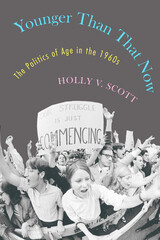
Some in the New Left were dubious of this strategy and asked how it might damage long-term progress. Young feminists and people of color were particularly quick to question the idea that age alone was enough to sustain a movement. And the media often presented young people as impulsive and naive, undermining their political legitimacy. In tracing how "youth" took on multiple meanings as the 1960s progressed, Scott demonstrates the power of this idea to both promote and hinder social change.
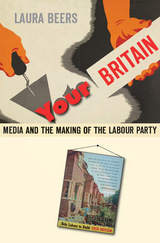
In the early twentieth century, new mass media—popular newspapers, radio, film—exploded at the same time that millions of Britons received the vote in the franchise expansions of 1918 and 1928. The growing centrality of the commercial media to democratic life quickly became evident as organizations of all stripes saw its potential to reach new voters. The new media presented both an exciting opportunity and a significant challenge to the new Labour Party.
Laura Beers traces Labour’s rise as a movement for working-class men to its transformation into a national party that won a landslide victory in 1945. Key to its success was a skillful media strategy designed to win over a broad, diverse coalition of supporters. Though some in the movement harbored reservations about a socialist party making use of the “capitalist” commercial media, others advocated using the media to hammer home the message that Labour represented not only its traditional base but also women, office workers, and professionals. Labour’s national leadership played a pivotal role in the effective use of popular journalism, the BBC, and film to communicate its message to the public. In the process Labour transformed not only its own national profile but also the political process in general.
New Labour’s electoral success of the late twentieth century was due in no small part to its grasp of media communication. This insightful book reminds us that the importance of the mass media to Labour’s political fortunes is by no means a modern phenomenon.
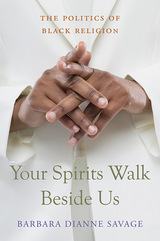
Even before the emergence of the civil rights movement with black churches at its center, African American religion and progressive politics were assumed to be inextricably intertwined. In her revelatory book, Barbara Savage counters this assumption with the story of a highly diversified religious community whose debates over engagement in the struggle for racial equality were as vigorous as they were persistent. Rather than inevitable allies, black churches and political activists have been uneasy and contentious partners.
From the 1920s on, some of the best African American minds—W. E. B. Du Bois, Carter G. Woodson, Benjamin Mays, Nannie Helen Burroughs, Mary McLeod Bethune, Charles S. Johnson, and others—argued tirelessly about the churches’ responsibility in the quest for racial justice. Could they be a liberal force, or would they be a constraint on progress? There was no single, unified black church but rather many churches marked by enormous intellectual, theological, and political differences and independence. Yet, confronted by racial discrimination and poverty, churches were called upon again and again to come together as savior institutions for black communities.
The tension between faith and political activism in black churches testifies to the difficult and unpredictable project of coupling religion and politics in the twentieth century. By retrieving the people, the polemics, and the power of the spiritual that animated African American political life, Savage has dramatically demonstrated the challenge to all religious institutions seeking political change in our time.
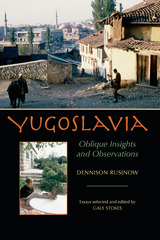
Rusinow's essays explore such diverse topics as the first American-style supermarket and its challenge to traditional outdoor markets; the lessons of a Serbian holiday feast (Slava); the resignation of vice president Rankovic; the Croatian Spring of 1971; ethnic divides and the rise of nationalism throughout the country; the tension between conservative and liberal forces in Yugoslav politics; and the student revolt at Belgrade University in 1968. Rusinow's final report in 1991 examines the serious challenges to the nation's future even as it collapsed.
READERS
Browse our collection.
PUBLISHERS
See BiblioVault's publisher services.
STUDENT SERVICES
Files for college accessibility offices.
UChicago Accessibility Resources
home | accessibility | search | about | contact us
BiblioVault ® 2001 - 2024
The University of Chicago Press









